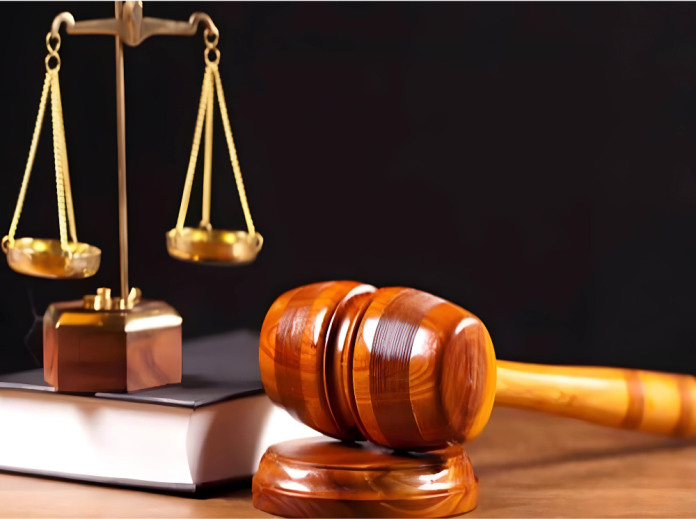By Mariama Marong
Justice Sidi Jobarteh of the Banjul High Court issued a stern warning to prison officers on Monday, instructing them to immediately cease the practice of handcuffing accused persons within the courtroom, calling it a violation of international legal standards and the rights of the accused.
The warning came during a court sitting on June 16, where about a dozen detainees appeared handcuffed in pairs. Visibly displeased, Justice Jobarteh interrupted proceedings to question the officers responsible, demanding to know why the accused were restrained while under the secure confinement of the courtroom.
In response, one of the prison officers explained that the use of handcuffs during court hearings was the result of a directive “from the top.” But the judge firmly rejected that justification.
“Let it stop today,” Justice Jobarteh said. “When they are in court, no one should handcuff them. These are international laws and we must abide by them.”
She emphasized that The Gambia, as a signatory to international human rights treaties, is bound by principles that protect the dignity and rights of all accused persons, including the presumption of innocence and the right to a fair trial. She added that unless there are specific security risks or legitimate reasons, the use of restraints in court is both unnecessary and unlawful.
“Within the confinement of the court, it is not allowed to handcuff accused persons,” she stated.
Justice Jobarteh underscored that being accused of a crime does not equate to guilt and that all individuals are to be presumed innocent until proven otherwise in a court of law.
Her intervention highlights ongoing concerns over how detainees are treated in the criminal justice system and raises broader questions about the alignment of courtroom practices with international human rights norms. The judge’s directive now puts pressure on the prison authorities to revise their operational procedures and ensure respect for the legal rights of the accused during court appearances.
















